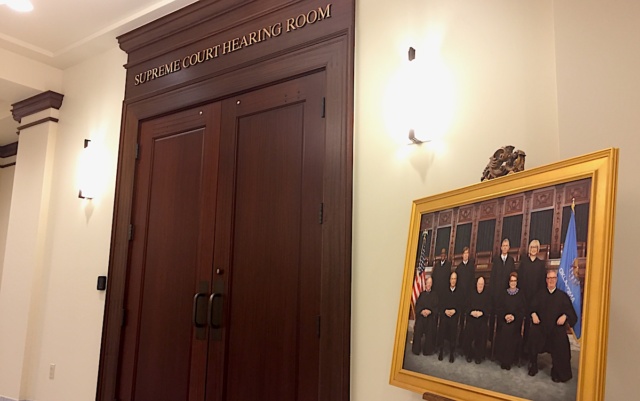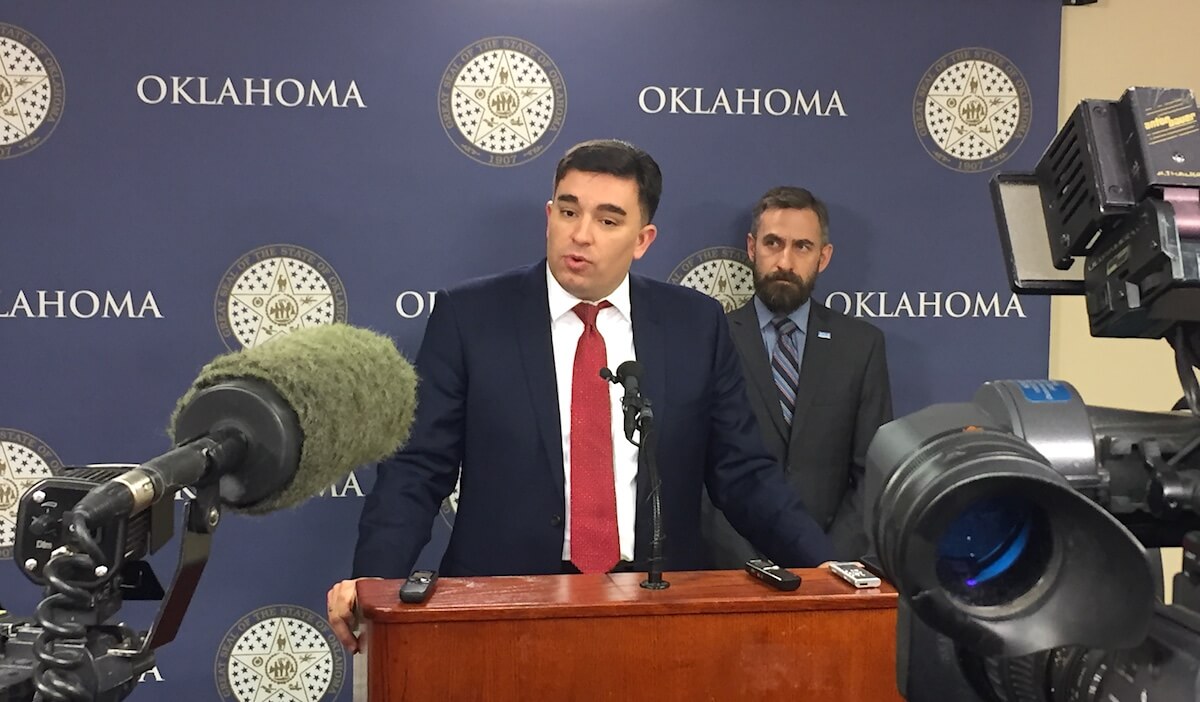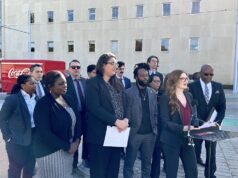

In responding to a legal challenge of Oklahoma Supreme Court Justice Patrick Wyrick’s appointment to the state’s highest court, a special assistant attorney general has called the lawsuit “frivolous” and is asking the court to designate the Judicial Nominating Commission’s decisions as “final and not reviewable.”
Neal Leader of the Oklahoma Attorney General’s Office responded by Monday’s deadline with a 14-page brief outlining three propositions he will argue in Wyrick’s defense during a Wednesday hearing. As of Monday night, the document had not been uploaded to OSCN.net, but NonDoc obtained a copy from the court clerk.
The suit, filed February 14 on behalf of petitioners Susan Spencer and Cheri Chandler by the ACLU of Oklahoma, argues that Wyrick had not been a qualified elector or bona fide resident for at least one preceding year in the state’s second Supreme Court district, which spans southeastern Oklahoma. On the application he submitted for the position, Wyrick notes he has lived in Broken Arrow, Norman, Moore and Oklahoma City over the past 10 years, though he simultaneously said he has been a resident of the court district “since birth.”
Leader’s propositions offered in response Monday argue three things:
- First, that the JNC’s determinations about a court nominee cannot be reviewed by any court;
- Second, that Spencer and Chandler lack standing to bring the suit because they have no legal claim to Wyrick’s position;
- Third, that even if the court “takes the unprecedented step of reviewing the JNC’s decision,” the decision was reasonable and supported by evidence.
“In 1967, the people of this State went to the polls and added Article 7-B to the Oklahoma Constitution, giving the JNC — and only the JNC — jurisdiction to determine whether nominees for the Oklahoma Supreme Court and the Court of Criminal Appeals meet the qualification to hold office,” Leader wrote in his response.
He continued two pages later:
Not surprisingly, this Court has never before purported to review a decision of the JNC pursuant to their constitutional authority to determine the qualifications of Justices for this Court. In light of this history and the “governing” and the “notwithstanding” other law language of Article 7-B, it was not the intent of the people that the Supreme Court or any court could review or undo the JNC’s decisions. It was the intent of the people that once the JNC did its job by deciding who is qualified to hold office and which of those qualified candidates it should nominate, its decision would be final, controlling, and unreviewable.
More than where you live?
The ACLU’s challenge to Wyrick’s standing as a “qualified elector” — which they argue means “bona fide resident” — within the court’s second district is based primarily around the notion that Wyrick had neither been registered to vote in nor lived in Atoka for more than a decade. He switched his voter registration from his central Oklahoma home to his childhood home in October, weeks before submitting his application to the JNC.
But even if the Oklahoma Supreme Court decides to review the JNC’s nomination of Wyrick, the justice’s defense argues that the nominating commission made an apt and just determination that Wyrick is a qualified elector in Atoka.
The JNC was well within its power to conclude that Justice Wyrick had the requisite contacts with his hometown of Atoka, given that he: (1) has spent most of his time during his life in Atoka; (2) his physical absence from Atoka was primarily for higher education and public service in Statewide office; (3) he has maintained continuous contacts with Atoka even when absent from the district by continuously maintaining either ownership or personal ownership of the house he grew up in outside of Atoka, and (5) has otherwise maintained familial and community ties to Atoka.
A court “referee” is set to hear oral presentations on the suit at 10:30 a.m. Wednesday, March 1.
RELATED
ACLU files challenge to Wyrick’s Supreme Court appointment by William W. Savage III





















